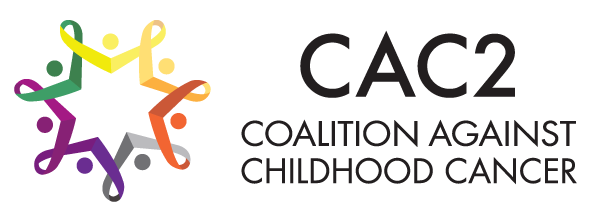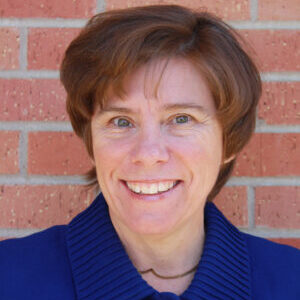By CAC2 Staffer Bethany Lieberman
School-aged children typically embrace the summer season with a sense of joy and abandon. For me, it’s usually a time for easy living, with warm sunny days and my feet in the sand, accompanied by outdoor grilling. I live on Cape Cod and have always cherished my summer days–spotting seals and whales migrating, watching boats pass by, relaxing with a good book, searching for unusual ocean-side rocks and shells to add to my collection, savoring lobster rolls, and chasing sunsets at Dowses Beach. This summer should have felt light, but instead it felt different. My usual sense of ease was gone, replaced with concern for those facing complex challenges and weighed down with worry for the people I care about. I imagine I am not alone.
I have a friend who already endured the profound loss of her child to thyroid cancer and now faces her own health crisis. She was recently diagnosed with aggressive lymphoma. The news comes as a shock. She is strong, but this is a difficult path, and my heart goes out to her and her family as they face a second cancer battle. Sadly, this family is not alone.
A colleague, a tireless pediatric cancer advocate, and her young daughter, who survived a low-grade brain tumor, haven’t enjoyed a typical summer. Instead, her daughter was in the hospital, receiving treatment for late effects from her brain tumor and previous therapies. Instead of playing in the summer sunshine, her daughter’s days were filled with travelling to receive new medical procedures—a harsh reality for a child who has already been through so much.
At home, my almost 25-year-old daughter is managing several degenerative and autoimmune health issues that require ongoing care from specialists, step therapy medications that require prior authorization, and ongoing invasive medical intervention. Questions about the fate of Medicaid add a significant burden. Potentially losing access to her doctors and preauthorized prescriptions creates immediate and overwhelming stress that impacts her well-being and our ability to support her. The thought of navigating complex health needs without proper coverage is a constant worry not only for our family but also for many others.
Many people besides me and the ones I mentioned have experienced stress for a variety of reasons. These are uncertain and challenging times that feel like too much to carry alone. Nevertheless, I know I am not alone in this feeling of heaviness. It’s a shared burden. Yet, even when things feel heavy, I find warmth in connection, especially my connection with the CAC2 community.
This connectedness became even clearer to me with the recent Rookie and Volunteer of the Year Awards Ceremony at CAC2’s Annual Summit. It was a simple event, but it was powerful. It brought together people who give their time and energy to help others. Seeing two individuals, Joshua Omale and Misha Mehta, recognized for their dedication to our shared cause, while feeling the collective energy of people focused on a common good, reminds me that compassion is indeed a powerful force. Good was paid forward twice over, and it reminded me that challenges and stress are burdens no one needs to navigate alone. It is a shared experience, and many are willing to help carry it.
As Mr. Rogers often said, “When I was a boy, and I would see scary things in the news, my mother would say to me, ‘Look for the helpers. You will always find people who are helping.” Helpers are present in many forms. They are the first responders who rush toward danger to protect lives. They are advocates who work to change policies and raise awareness for important causes, giving a voice to those who need it most. They are CAC2 members and the people who support pediatric cancer foundations that provide crucial funding for research and treatment, offer financial aid to families, or deliver other support programs for those undergoing treatment or navigating survivorship. They are also the quiet helpers in our everyday lives—a neighbor offering a meal or a friend listening without judgment.
My involvement with the Coalition Against Childhood Cancer (CAC2) has shown me firsthand just how many helpers are out there. I have seen how they connect newly diagnosed families with experienced mentors who understand the childhood cancer journey. CAC2 provides clear, reliable information when families are overwhelmed. Its members advocate for better treatments and support services. Whether you are in the thick of treatment, trying to understand complex medical information, or a bell-ringing survivor navigating life after cancer, there are people ready to offer support. CAC2 helps families find psychosocial support, connect with others in similar situations, and access resources for long-term health management and support. The CAC2 network provides connection and community with the understanding that no one should navigate childhood cancer alone.
If you are feeling overwhelmed this summer, know that help is available. CAC2’s Childhood Cancer Hub (CCH) provides valuable resources to help make your path clearer and lighter. The CCH’s Hope Portal (HP) can help you find resources while a child is in treatment. The CCH’s Better Together: Survivorship Connection (BTSC) directory focuses on resources for childhood cancer survivors, connecting them with long-term follow-up care and support services. The CAC2 Survivorship Toolkit offers educational resources and additional support for childhood cancer survivors, their families, and caregivers. These three tools can help alleviate overwhelming feelings by providing clear pathways to support, regardless of where you are along a childhood cancer journey. The knowledge that assistance is available and can connect you with the support you need helps free you to focus on healing, easing some of the practical burdens that a childhood cancer diagnosis brings. It allows you to find pockets of joy this summer.
While so many situations may feel heavy, they are all different. When we unite, we are resilient. I am resilient. As committed volunteers and professionals, when we lean on each other, we find strength in our connections and are able to move forward.
I look forward to a new – and hopefully – easier season. Together, we’ve got this.




